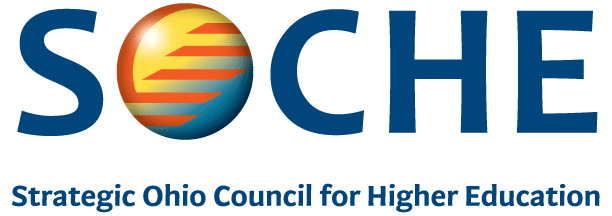
It is the daily mission of the Ohio Department of Higher Education (ODHE) to make postsecondary education accessible and affordable for all citizens. Fulfilling this mission includes both broad and program-specific efforts to improve Diversity, Equity, and Inclusion (DEI) across the higher education spectrum.
Academically, ODHE leads statewide efforts to enhance access and equity in postsecondary education. Finish for Your Future (FFYF), funded by the Lumina Foundation, is a program that has developed strategies to support the more than 1.3 million Ohio adults with some college but no degree. The FFYF Closing Equity Gaps Subgroup Report (September 2020 – https://www.ohiohighered.org/FFYF/reports) provides 10 recommendations on recruitment and institutional initiatives to support reducing equity gaps in credential and degree completion with adult learners.
Another program, Strong Start to Finish, funded by the Gates Foundation, the Kresge Foundation, and Ascendium, is a collaboration of 30 Ohio public colleges and universities committed to fundamental developmental education reform. The reform strategies adopted at Ohio colleges and universities – including co-requisite remediation and holistic advising – have been shown to reduce achievement gaps for students of color, economically disadvantaged students, and adults returning to higher education.
Ohio’s public institutions of higher education, with ODHE’s support, are in the process of incorporating DEI learning outcomes to the Ohio Transfer Module, a subset of the General Education curriculum consisting of 36 semester hours. Through the dedicated work of faculty, staff, and administrators, DEI learning outcomes have been developed and will be an elective option within the newly revised transfer module. Students will benefit from these new DEI courses because they will be better prepared for the workforce by learning how to be open to different perspectives as they become an important part of the global society. These courses will fit into the Ohio Guaranteed Transfer Pathways, and as other states develop similar courses, Ohio will continue working to remain a leader in this area.
To make Ohio’s dual enrollment program more accessible to underserved students, the work of the College Credit Plus Advisory Committee this year will focus on equity. ODHE has encouraged Ohio’s secondary schools and colleges to apply for a waiver of College Credit Plus program requirements to provide innovative programming to underrepresented student populations. These innovative programs provide specific pathways and extra academic support for students of color, low socio-economic status, and students with other barriers to higher education. In the 2020-2021 Academic Year, 21 innovative program waivers have been granted by the Chancellor in collaboration with the Superintendent of Public Instruction, serving approximately 1,500 students.
ODHE has pursued and promoted other programs and policies affiliated with DEI, including:
- At-risk weights in the State Share of Instruction (SSI) formula that provide additional funding to institutions based on age, race, income, academic qualifications, and first-generation student status;
- Increased state financial aid support with a particular focus on low-income students through the Ohio College Opportunity Grant;
- Support for GEAR UP Ohio, a program that embeds a college-going culture in targeted schools and communities to increase the number of low-income students prepared to enter and succeed in postsecondary education;
- 3 to Get Ready, a campaign that helps students prepare for their postsecondary education by completing the Free Application for Federal Student Aid (FAFSA), submitting college applications, and selecting where they’ll pursue their postsecondary education; and
- The Governor’s Emergency Education Relief (GEER) funds, used in FY21 to promote greater FAFSA completion efforts and promotion of college access efforts, and to implement co-requisite remediation at all Ohio community colleges.
At the agency level, ODHE has developed strategies to better educate, inform, and include staff in DEI initiatives. ODHE remains committed to fostering a diverse and inclusive workforce and fully embraces Governor DeWine’s directive to broaden our definitions of inclusion, as well.


